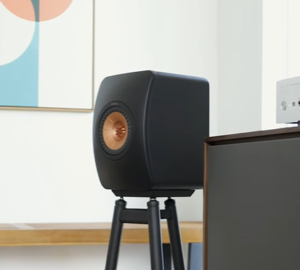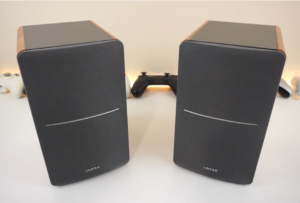-
Willie Greer
- August 29, 2021
Classical music is meant to be enjoyed at its fullest and this means vibrant treble and excellent sound delivery. An expensive speaker can give you what you’re looking for, but do you always have to pay through the nose to get it? Is there a chance you will be left disappointed regardless of the price? Our audio team’s picks below will ensure that doesn’t happen.
- Matte exterior in 4 colors
- MAT Technology
- Uni-Q Driver
- DMC construction
- Minimal harmonic distortion
- Linear Travel Suspension tweeter
- Cerametallic woofer
- Tractrix Horn
- Affordable budget speaker
- Studio sound quality
- 2-year warranty
- Bass, treble, and volume controls
At A Glance: Our Top 5 Picks for Speakers for Classical Music
- Best Overall: Klipsch RB-51 II
- Premium Pick: KEF LS50 Meta
- Budget Option: Edifier R1280T
- Cerwin-Vega XLS-6
- Dayton Audio T652-AIR
| IMAGE | PRODUCT | |
|---|---|---|
Best Overall 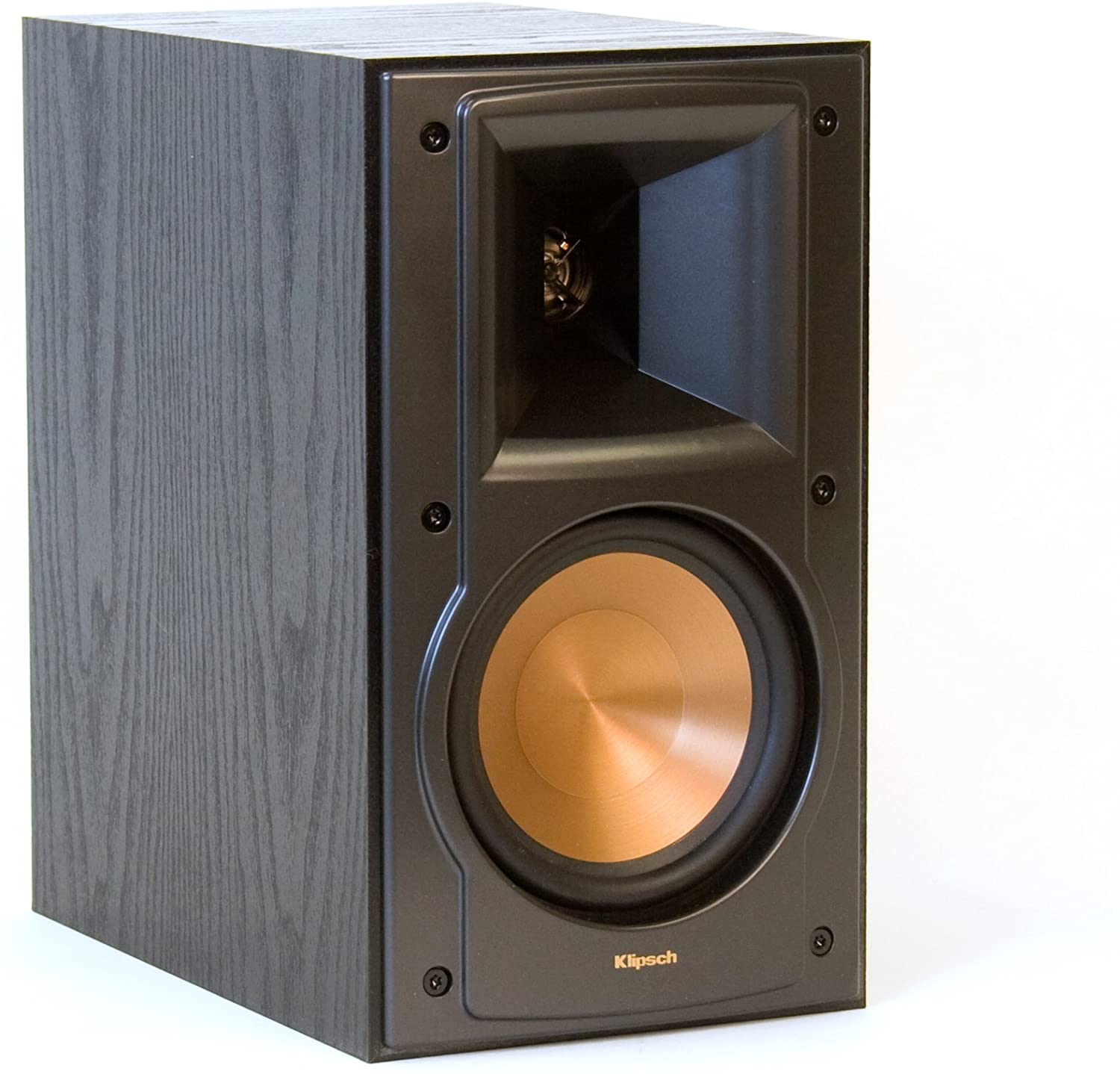 | Klipsch RB-51 II
| Our Rating: 100% VIEW LATEST PRICE → |
Premium Pick 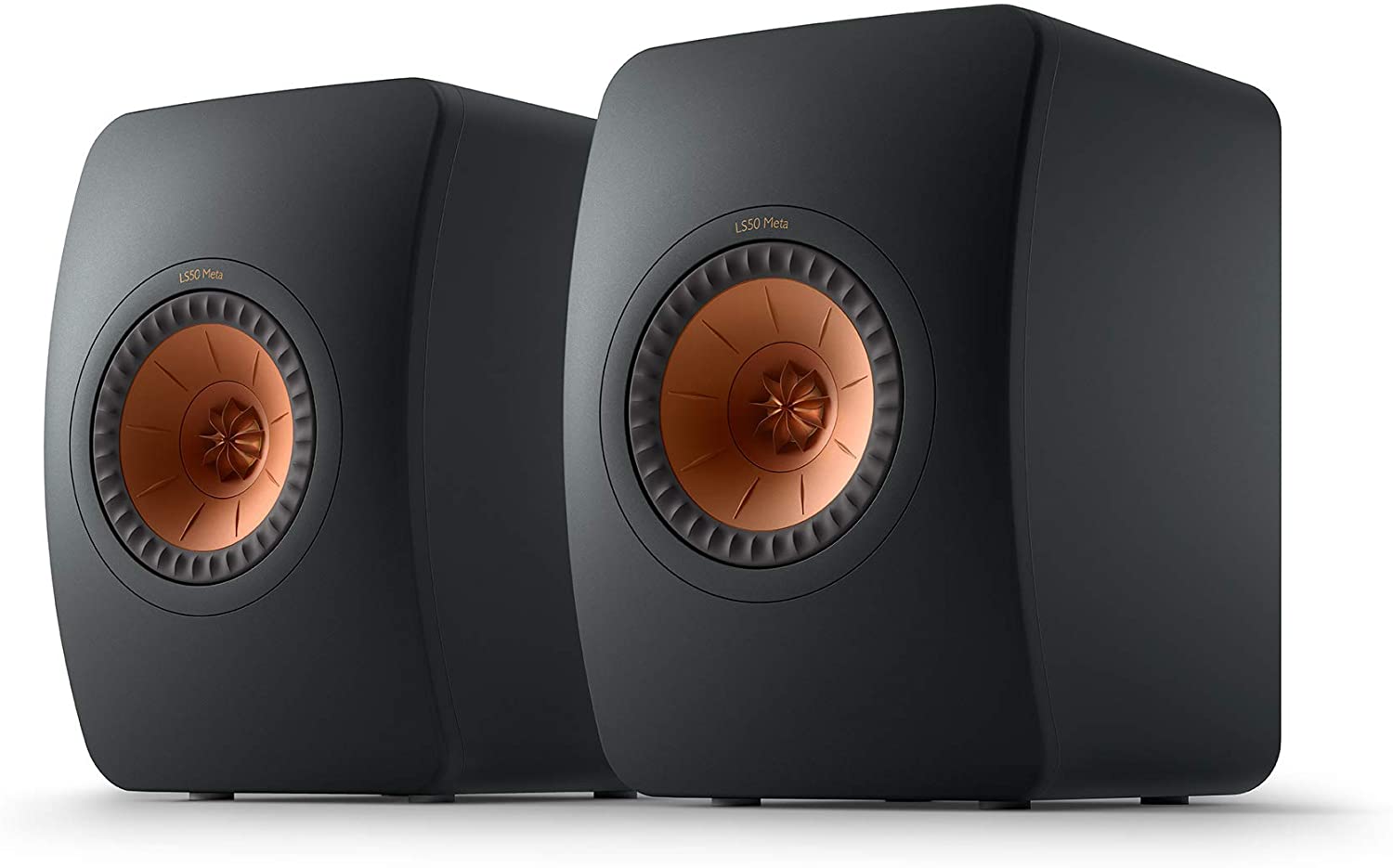 | KEF LS50 Meta
| Our Rating: 100% VIEW LATEST PRICE → |
Budget Option 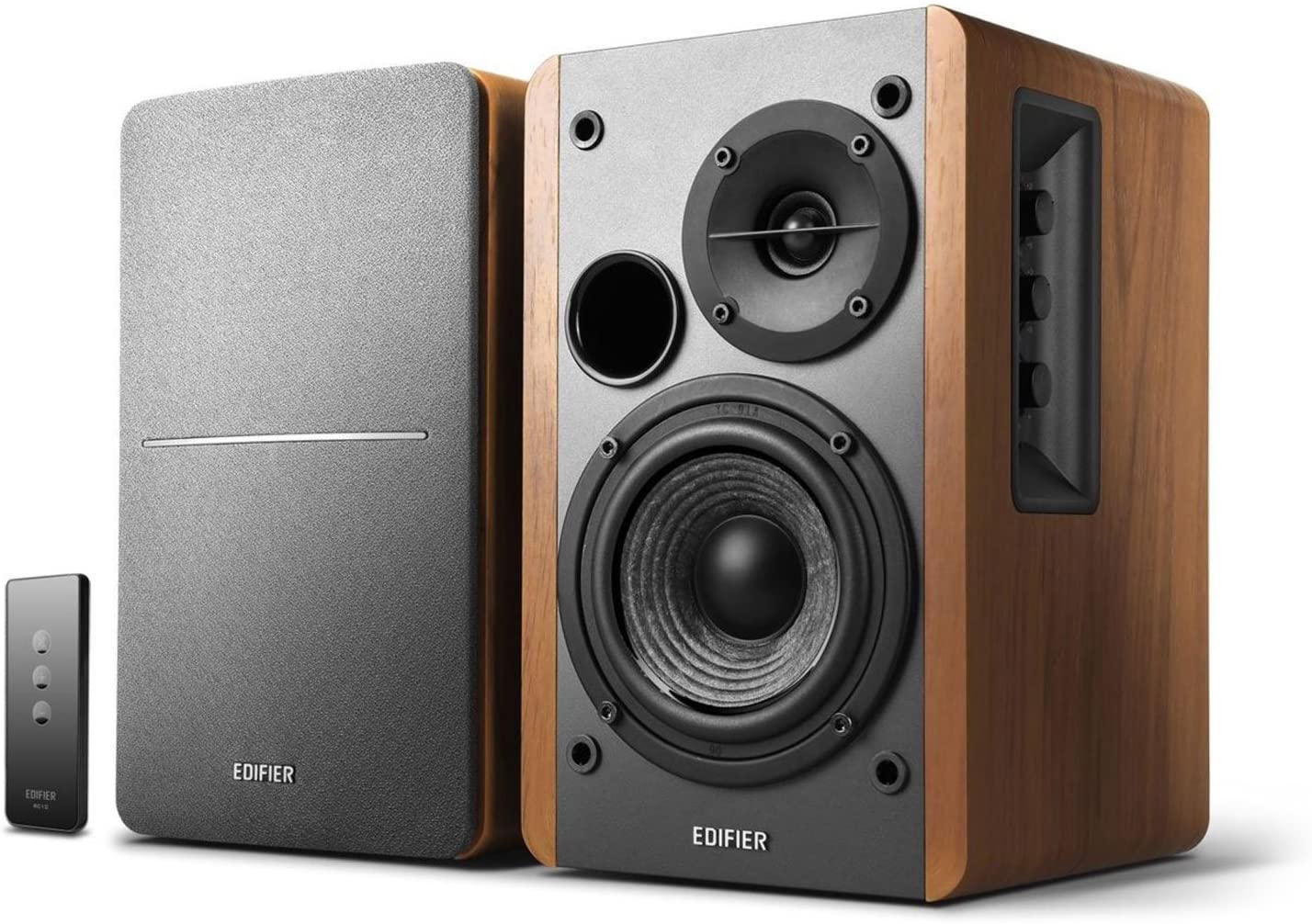 | Edifier R1280T
| Our Rating: 98% VIEW LATEST PRICE → |
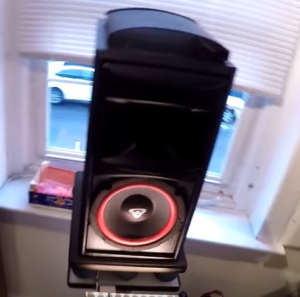 | Cerwin-Vega XLS-6
| Our Rating: 95% VIEW LATEST PRICE → |
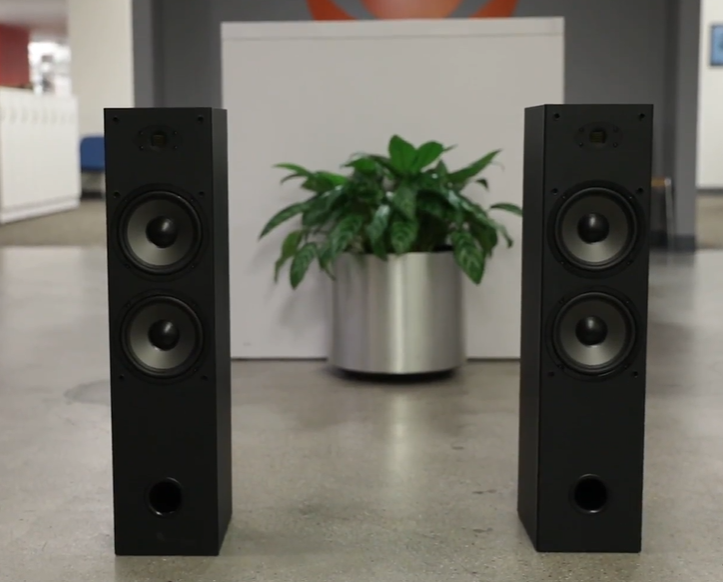 | Dayton Audio T652-AIR
| Our Rating: 92% VIEW LATEST PRICE → |
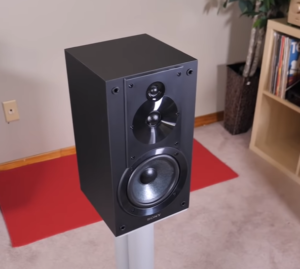 | Sony SSCS5
| Our Rating: 92% VIEW LATEST PRICE → |
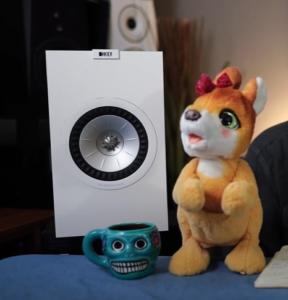 | KEF Q350 Bookshelf Speakers
| Our Rating: 91% VIEW LATEST PRICE → |
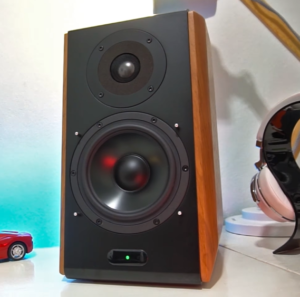 | Edifier S1000DB
| Our Rating: 96% VIEW LATEST PRICE → |
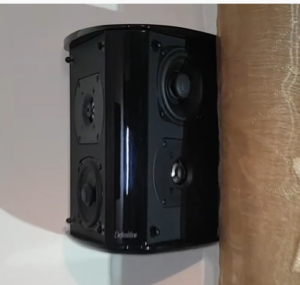 | Definitive Technology SR-9040
| Our Rating: 88% VIEW LATEST PRICE → |
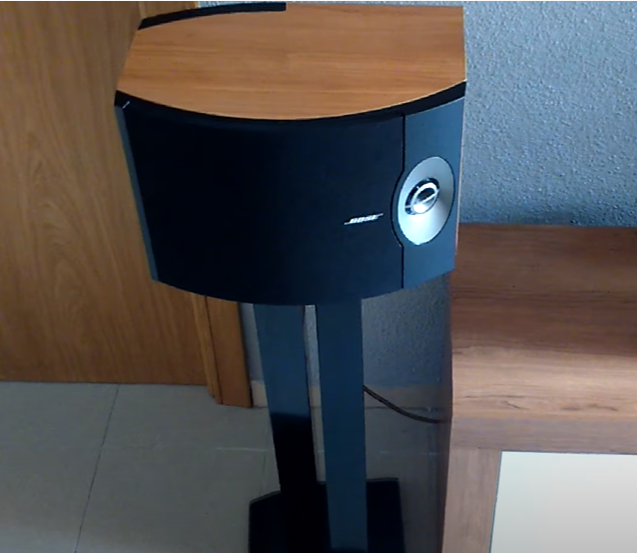 | Bose 301-V
| Our Rating: 99% VIEW LATEST PRICE → |
Reviews of the Top Speakers for Classical Music
Klipsch RB-51 II
The Klipsch RB-51 II is full of proprietary technology from the brand to help boost your classical music experience. The Tractrix Horn Technology, combined with the cerametallic woofer and a titanium linear-travel suspension horn-loaded tweeter will generate the best sound quality money can buy – especially for classical music lovers.
The bookshelf unit can be mounted or placed on a flat surface, and it propels deep bass and fits in well with all speaker systems. A classical music enthusiast will rejoice when they realize just how clean the sound is free of detectable harmonic distortion at any volume level.
What We Like
- Excellent classical music sound quality
- Clear vocals and classical music strings
- Great bass response
- Cerametallic woofer
- Titanium linear-travel suspension horn-loaded tweeter
- Tractrix Horn Technology
- Multiple setup options
- Black ash wood grain exterior
What We Don’t Like
- Sounds better with the grills off
- Not waterproof
KEF LS50 Meta
The KEF LS50 Meta is up there in terms of cost, and it beats out all the other options on our professional testers’ list at over 1000. However, our experts feel it’s more than worth the price with the deep bass sounds it can produce along with superior construction.
The injection-molded Dough Molding Compound baffle with cross bracing makes the LS50 one of the best speakers for classical music. These bookshelf speakers also have a very beautiful matte exterior and 4 different colors to choose from.
The luxurious speakers are equipped with KEF’s 12th generation Uni-Q driver with metamaterial absorbing technology (MAT) that will reduce undesirable noise.
What We Like
- MAT Technology
- 12th generation Uni-Q driver
- 4 finishes
- 2-way bass reflex design
- Flexible port
- Solid construction
- Beautiful exterior
What We Don’t Like
- Expensive speakers
- Needs some breaking in
Edifier R1280T
You can still get a classical music boost from a pair of affordable bookshelf speakers, as the Edifier R1280T has proven. The R1280T gives you full control over the bass and travel, which allows you to customize your sound stage from these high-quality speakers.
You can play classical music and notice a much richer bass response and the silk dome tweeter will create a balanced sound that highlights soprano vocals and high woodwind and string instruments. The elegant speakers deliver high-quality studio sound and these speakers for classical music also come protected with a 2-year warranty.
What We Like
- Studio quality sound
- Excellent for classical music production
- Integrates well with your speaker system
- Looks great in your listening room
- Produces a dynamic range
- Bass, treble, and volume controls
- High-quality wood finish
- Full-spectrum speaker
- Affordable price
What We Don’t Like
- Exceptional classical music units but not for hip hop
- Needs to be broken in
Cerwin-Vega XLS-6
A classical music lover will be pleasantly surprised by Cerwin-Vega. The XLS-6 has a 125-watt max output power that is felt through the soft dome tweeter and the fiber impregnated cone woofer.
The speakers for classical music feature proprietary Waveguide Technology that helps produce the most accurate mids. The Cerwin-Vega XLS-6 classical music speaker system is quite a looker with a black ash enclosure and red rims around the woofer.
These are considered floor-standing speakers, which is a great alternative for those who do not have the shelf space for bookshelf models.
What We Like
- High peak power output
- Fiber impregnated woofer cone
- Waveguide Technology
- Soft dome tweeter
- Black ash enclosure
- Decent frequency response
- Video shielding
- High-frequency protection
What We Don’t Like
- Pair with a sub for better bass
- The grille is difficult to remove
Dayton Audio T652-AIR
For classical music enthusiasts that are looking for larger tower speakers, our audio engineers have included the T652-AIR from Dayton Audio. There are dual woofers in these speakers for classical music that are effective for enhanced bass definition. The ported bass-reflex design will further improve bass production.
The woofers are accompanied by AMT tweeters that will instantly elevate your classical music. The T652-AIR has a slim profile and performance that is absolutely stunning for a speaker within this affordable price range.
The classical music speakers may only come in one color, but the simple design will surely match your speaker system.
What We Like
- Best speakers from the brand for classical music
- AMT tweeters
- Dual woofers
- Amazing audio quality
- Ported bass-reflex design
- Slim profile and simple design
- Easy to set up
What We Don’t Like
- Not powered speakers
- Takes up more space
Sony SSCS5
If you know about types of speakers, then you will understand that 3-way models usually produce better sound quality. The main tweeter features a polyester cone and the super tweeter, responsible for the high notes in classical music, is optimized for immersive sound.
If you’re worried about bass, don’t be. The Sony SSCS5 speakers for classical music are outfitted with a foamed mica cellular reinforced woofer to bring out all the low tones. You can choose to use the SSCS5 on their own or pair them with the rest of your speaker system to become satellite speakers.
What We Like
- High-quality speakers for classical music
- Works well with a stereo system
- Recreates sounds from the concert hall
- Decent frequency range
- High definition sound
- Foamed mica cellular reinforced woofer
- 3-way design
What We Don’t Like
- More even toned
- No wood texture
KEF Q350 Bookshelf Speakers
KEF never disappoints our team, and the Q350 brings astoundingly pure sound waves from a very understated body. They have an improved Uni-Q driver array, which makes them even more coveted than some other speakers from the brand. The new array brings even treble and accurate bass.
You can take your pick from white, black or walnut finishes so there is always an option to fit in with your interior decor. You don’t need special speakers to maximize the sound produced through the drivers when you just need the Uni-Q Technology.
Sit anywhere in your living room to enjoy low distortion and widely dispersed sound with KEF Q350.
What We Like
- CFD designed port
- Low distortion
- Produces detailed sound from the Uni-Q driver array
- 3 finishes
- Redesigned to reduce internal resonance
- Versatile setup and connections
- Tangerine Waveguide
What We Don’t Like
- No grilles
- Not an active speaker
Edifier S1000DB
Bluetooth connectivity can really come in handy for classical music playing, and the best Bluetooth speakers for classical music title goes to the Edifier S1000DB. They produce a dynamic range of sounds that are optimal for classical music listening. The audio quality is unmatched, especially when you take into account the bass richness and clarity.
The versatile classical music speaker integrates well with not only your home theater system, but also your PC – anything with RCA, AUX, optical or coaxial connections.
They aren’t small speakers, but the silhouette is the perfect balance between size and sound quality.
(For a rigid and stable speaker setup, we recommend these reliable stands for speakers to you)

What We Like
- APTX Bluetooth 4.0
- Low latency
- Versatile unit for games, choral music and more
- RCA, AUX, coaxial and optical inputs
- Comes with a remote control
- Dynamic range of sound
- Solid speaker with 2-year warranty
What We Don’t Like
- Only has one finish
- Not the most affordable speaker set
Definitive Technology SR-9040
Our audio team can’t stop raving about the design of the Definitive Technology SR-9040. The trapezoidal design makes it an excellent bookshelf speaker choice to place in a corner. The speakers also feature BDSS Technology for the best sound quality with a bi-polar design for immersive classical music.
The expensive-looking speakers can be wall-mounted, elevated, or simply placed on your shelf. Although the grilles cannot be removed, the brand has designed them to be acoustically transparent, meaning they will not obstruct sound production.
The resonance-free cabinet will only bring you unhindered rich sound from a combination of good sound drivers.
(If you are looking for other speakers from other brands, we have a full review of Harman Kardon Onyx Studio 5 speaker here)

What We Like
- Delivers natural sound
- Wonderful speakers for classical music
- Versatile placement
- Eye-catching exterior
- Balanced Double Surround System (BDSS)
- Bi-Polar Design
- Aluminum dome tweeters
What We Don’t Like
- One speaker, not a set
- No control panel
Bose 301-V
If you have a very specific sound system setup in your listening room, then the Bose 301-V’s horizontal design could be the solution to a better layout. These speakers for classical music are designed to propel a wider soundstage with the spatial dispersion speaker lens.
The two speakers sound great together and work as a well-oiled team to produce left and right sounds as accurately as possible to deliver encompassing classical music.
The grilles are removable to allow the long excursion woofers to project audio even further and the speaker system comes with automatic protection circuitry.

What We Like
- Unique horizontal design
- Very well-suited for classical music
- Good frequency response range
- High-quality sound with spatial dispersion speaker lens
- Best bookshelf speakers for space
- Boosts overall sound quality
- Can be elevated on speaker stands
- Bluetooth connectivity
What We Don’t Like
- The bass may vibrate
- Needs breaking in
Speakers for Classical Music Buyer’s Guide
Classical music is arguably the most high-maintenance genre of music that requires the best speakers to produce. Aside from reading speakers for classical music reviews, a great way to find the best speaker for your needs is to pay attention to certain points. Our audio team has outlined the most important aspects to look for in the best speakers for classical music.
Size and Design
First thing is the size of your speakers. You have to be sure they fit into your system to find the proper placement. To accommodate the needs of all of our readers, our expert engineers have included very small horizontal bookshelf speakers, ones of average size, and floorstanding speakers as well.
Don’t worry about the size affecting the sound quality, because you don’t need large models to experience the best sound output. In fact, some of the best models are small in design.
Just make sure the speaker controls and inputs on the speakers are easy to access. Ideally, they are placed on the side or the front. However, as not to impact the visual appeal of a unit, many manufacturers place them on the back.
Type of Speaker
There are many categories within what type of speaker to choose. For starters, you have to identify whether you want 2 or 3-way models, floorstanding or bookshelf, and passive or active.
Let’s tackle the difference between the 2-way and 3-way models first. The numbers generally represent the drivers in the speaker. A 2-way design is among the most basic and it is a unit with a tweeter for the highs and a woofer for the lows. The tweeter and woofer need to work together to create the mids.
When you have a 3-way speaker, you are getting one extra driver to handle the midrange. As you can imagine, the arrangement of the 3-way speaker guarantees a much better listening experience. There is a dedicated driver to every section of the sound spectrum.
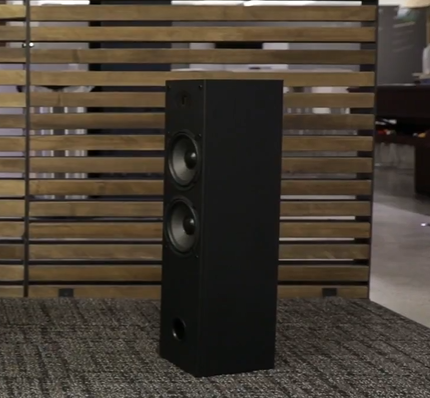
3-way models are usually pricier, so that is something to keep in mind. Another very important quality our engineers need to remind everyone of is that not all speakers are created the same. It’s entirely possible to find a very well-designed 2-way speaker with premium components that outperforms a 3-way speaker of low quality.
Your next consideration is either a floorstanding model or bookshelf speaker. You can find 2 or 3-way speakers within both types, so it will not impact your choice. This is good news for people who cannot pick floorstanding speakers due to a lack of space.
The type of speaker you choose is a personal preference, but bookshelf speakers do offer more versatility for placement and use. A lot of models can be wall mounted, placed on stands, or just on your shelf. They can also be used for different functions such as standalone speakers for classical music or support the rest of your system as satellite speakers.
Lastly, do you want powered or passive speakers and what’s the difference? The main difference between passive and active, or powered speakers is the presence of an amp. Powered speakers have an in-built amplifier and passive ones do not. Which one should you get?
Our experts suggest getting active speakers if you are a casual listener. An active model will come with the amp already within the device, so you won’t need to spend extra time looking for a compatible amp and setting it up. However, it does limit system customization down the line because the amp is not separate.
As for passive models, these are the ones we recommend for avid audiophiles that either already have an amp, are very knowledgeable about the advanced crossover circuit and other details involving the right amplification. Plus, this type of speaker also allows for most system customization.
One more aspect to consider is the design variation between the two types. Passive models are lighter and smaller in general due to the lack of an internal amp. The opposite is true for active speakers.
(Looking for compatible speakers for your home theater? Well, here are the most impressive wireless speakers for TVs you can consider)
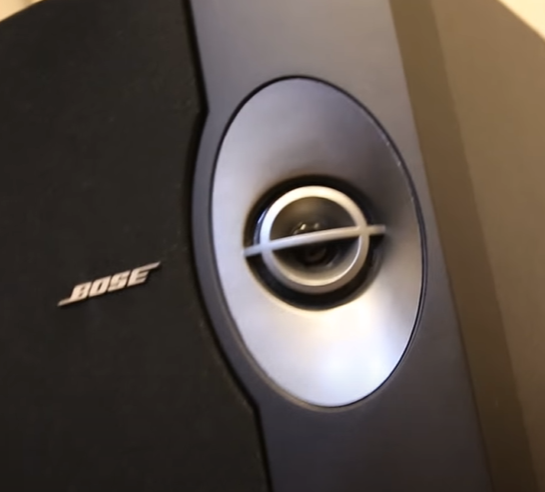
Power
The power is important for the best speaker for classical music, as it is with all other audio devices. You want to experience loud music without any clipping or distortion at any volume level. There are two power ratings – the RMS and the peak power. The RMS is the one you want because it is the rating at which the speaker can be played without risking damage over a longer period.
The peak power, or maximum output, is the rating for max power in short bursts. If you play your speakers at max output for long periods, you risk blowing them out.
The power is measured in watts, and the higher the number the more power it has. Our team members say to look for a power output at around 100 watts and over at peak for each individual speaker.
Impedance
The impedance of a speaker for classical music pertains to its efficiency at transforming power into sound. It is measured in ohms, and the lower the number, the less resistance it has to the current flow. The most common impedance ratings are 2, 4, 6, and 8. A 4 ohm speaker will be more efficient than an 8 ohm one.
Sound Quality
There are many things that affect the sound quality in a speaker. From the drivers, and advanced technologies to the materials, they all come together to bring out the best sound possible.
Advanced drivers such as horn-loaded aluminum tweeters, cerametallic woofers and ones with linear suspension will perform better than your average paper cones.
We then have the technologies outfitted within each speaker, which can include the Tractrix Horn, Uni-Q and Waveguide Technology seen in many of the models on our ist. Brands will include some of their special innovations in an attempt to pioneer development.
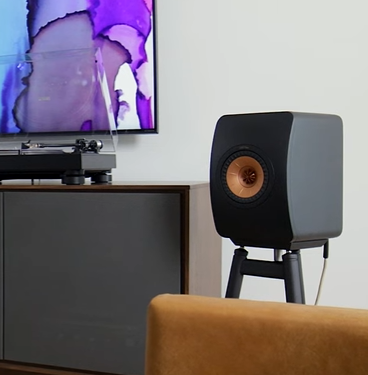
Dynamic Range
If there were ever speakers that need dynamic range, it is classical music speakers. The dynamic range is the range between the loudest and quietest volume on a speaker. A higher dynamic range in classical music speakers will guarantee sonic precision and a much better listening experience.
While we’re on the topic of audio range, let’s also talk about the frequency response. The frequency response on a speaker should be as wide as possible. The human audible range [1] is within 20Hz to 20kHz, and your classical music speaker should ideally produce a frequency response within that range.
You may not get as low as 20Hz for the frequency response without the help of a subwoofer, but a sub is easily integrated into your system with the right connections.
Tweeter and Woofer
Whether you pick a 2 or 3-way speaker, you will definitely have a tweeter and a woofer behind the grille. The woofer is the driver that is responsible for the low tones down to the deepest bass and the tweeter handles the shriller pitches. There are special drivers in electrostatic speakers. These drivers will produce much lighter and accurate sound at a very low distortion if any at all.
Crossover
The crossover in a speaker is the filter that allocates the correct tones to the right driver. The high tones will be filtered to the tweeters and the low frequencies will go to the woofer. Understanding the filter levels in your speaker will give you an idea of the type of sound it can produce.
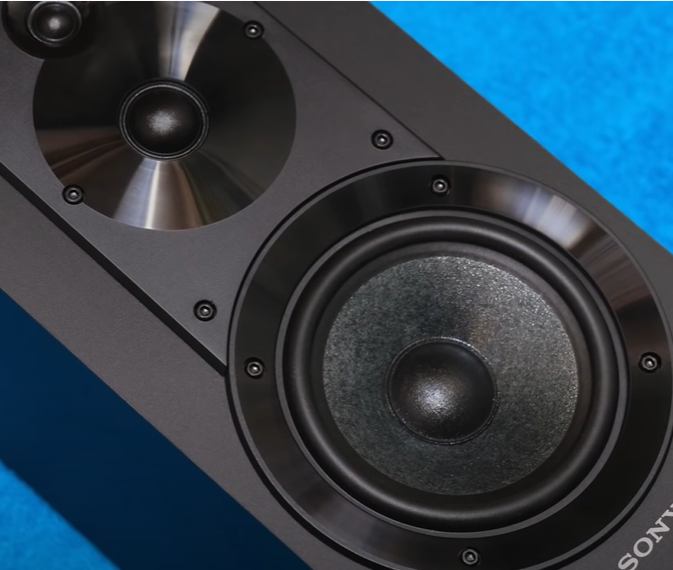
Material Durability
As for material durability of a speaker, our team of sound experts say it includes the drivers and the enclosure. You want your speakers to last as long as possible, and that means durable material construction that is resonance-free.
You can even find ones that are waterproof, dustproof, and shockproof, although this is more common to see in Bluetooth wireless speakers. MDF is a great speaker construction material that is tough and lightweight.
Another way to guarantee durability of your speaker is if it contains protective circuitry. This is wiring in the system that guards against electrical surges, overpower and more.
Price and Warranty
As always, our sonic team included the best speakers for classical music within a wide price range to accommodate everyone. The best options for classical music can cost as low as a couple of hundred to over 1000 – it all depends on your preference and needs. We’re glad to announce that price isn’t an obstacle for those who want to experience the best classical music output.
For any technological product you buy, a warranty will elevate a product’s standing and also give you peace of mind as a consumer. A 6 to 12-month warranty is standard, but the longer it is the better. There are options on our list that offer a lengthy 2-year warranty!
Setting Up and Utilizing Your Speakers
To get the most out of your classical music speakers, you need to know how to set them up. Where you place them can be just as critical to the sound production as the embedded advanced technologies.
Unless they are floorstanding speakers, our team recommends avoiding placing other types directly on the floor. Hard surfaces could hinder sound production, which is why speaker stands are recommended.
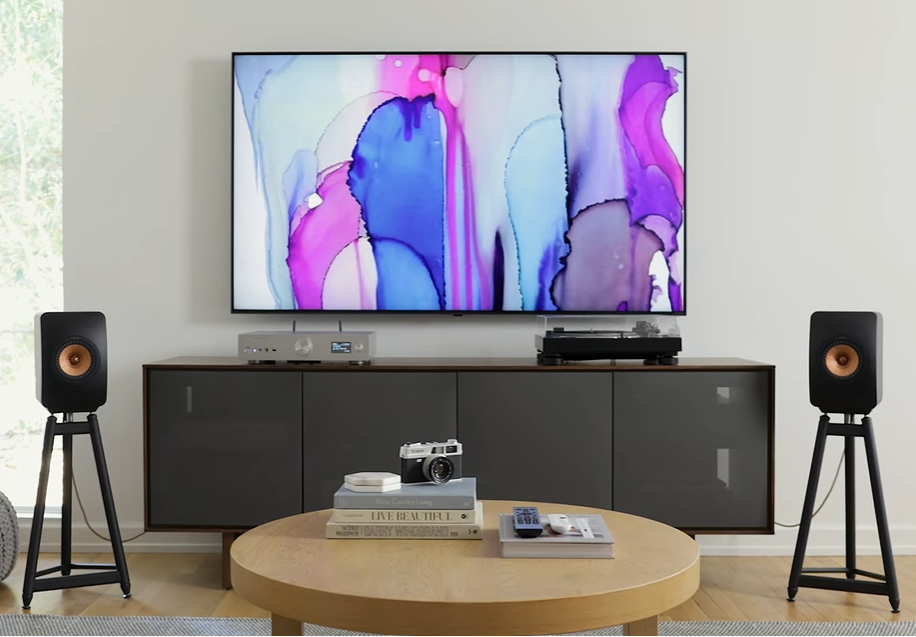
Manufacturers and brands often boast about “sit anywhere” technology, which means you can perch the speakers anywhere to produce the best audio quality no matter where your listening position is. In our experience, unless you are willing to spend more, the placement will affect the audio quality despite the presence of these functions.
Of course, these technologies make a difference but it all comes down to angling and location at the end of the day. You want items in the room that won’t completely dampen the sound but won’t create an echo either. Hard surfaces will greatly increase the probability of hollow and echoing audio, so hardwood and tile floors will do well with a carpet or a rug laid carefully on top.
With the furniture, you should also avoid any flat and glossy materials that will result in reflected sound. Stay away from a lot of glass and marble and opt for wood instead.
Where you put them depends on what you are using them for. If you are using your speakers to act as satellite units for your existing system, then they should go somewhere behind you. There are several rules of thumb to abide by when placing your speakers. Always make sure there is nothing obstructing the sound production, keep the two speakers symmetrical at an equal distance from each other and you.
(For helpful guides and tips, we also have a dedicated page about connecting mixer to an audio interface properly here)
FAQ
Which Bluetooth speaker is best for classical music?
The best Bluetooth speaker for classical music is the Bose 301-V. They come in a pair and are horizontally designed to save space. They are wireless and portable but can produce excellent sound with the spatial dispersion speaker lens and bass reflex design.
Are Klipsch speakers good for classical music?
Yes, Klipsch speakers are good for classical music. In fact, the Klipsch RB-51 II is our top pick. They usually feature the brand’s proprietary Tractrix Horn and linear technology and the cerametallic woofers they include are exceptional for bass response. Klipsch speakers have excellent dynamic range for classical music.
Our Top Pick For a Speaker For Classical Music:
Klipsch RB-51 II
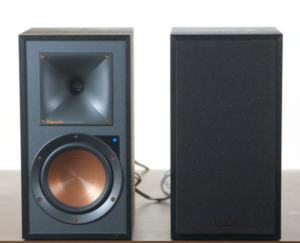
Our team has agreed that the Klipsch RB-51 II speakers are the best for classical music. The dynamic sound production and highly efficient design will deliver exceptional highs and lows for classical music. The Tractrix Horn, cerametallic woofers, and linear-travel suspension horn-loaded tweeter work well to outperform all the competitors.
For great options, we also listed the following products for you:

